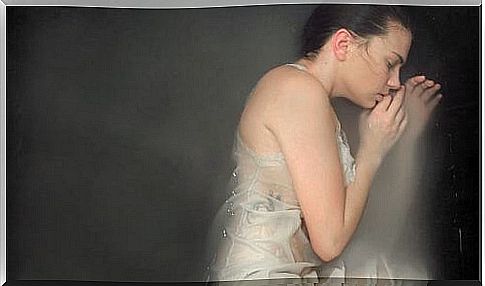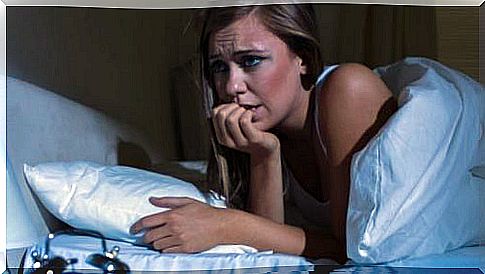Nocturnal Panic Attack: Causes And Treatment
Clinically, it is very common in patients with panic attacks during the day.

Whether for medical or psychological reasons, if we have already suffered from a nocturnal panic attack it is important to tell our doctor so that he can help us solve this problem.
The nocturnal panic attack appears unexpectedly in the middle of the night and is accompanied by a feeling of suffocation, tachycardia and sweating.
However, we know that nocturnal seizures are more intense and painful.
Likewise, it is important to point out a strange aspect. 10% of people who suffer from anxiety, who are under pressure because of their lifestyle and suffer from a high level of stress, may suffer from a nocturnal panic attack.
On the other hand, there are also other segments of the population which, for personal or medical reasons, are also sensitive to this type of situation.
These, in some cases, can become a real problem.
We will see more information below.
Nocturnal panic attack: who can suffer from it?

We don’t talk a lot about nocturnal panic attacks. So much so that they often come by surprise.
When referring to nocturnal panic attacks, it is common to imagine a person fearful, paralyzed and suffering from tachycardia in any daytime circumstance in which the mind admits there is a danger or a hotbed of anguish.
At night, and in a place as safe as the bed, it is hard to imagine why we would suffer from these types of situations and yet it is more common than we think.
Now let’s see what kind of people are at risk for nocturnal panic attacks:
- Patients who already suffer from panic attacks during the day
- People who are under great psychological and emotional pressure
- Patients with hyperthyroidism or hypothyroidism
- People who suffer from apnea
- Gastroesophageal reflux can also be the cause
- People who have just experienced a traumatic event : loss of a loved one, accident or witness to an accident …
What are the symptoms of a nocturnal panic attack?

Nocturnal panic attacks often appear during the non-REM phase of sleep, that is, when we are calm and, oddly enough, more relaxed (it is more common for them to appear around 2 a.m.) .
- The awakening is sudden and violent, as if someone was activating a mechanism that would “tear” us from our sleep.
- The awakening is accompanied by a feeling of intense fear, panic or fatality
- It is accompanied by choking, tachycardia and sweating
- The person feels that this situation has lasted a very long time. However, it is often very limited and brief and generally does not exceed 15-20 minutes.
Likewise, it is important to point out that we are more confused in the face of these crises than in the face of daytime crises.
They appear out of nowhere, in the midst of sleep and this world of the unconscious and relaxed, where you least expect them.
This is why the lack of control is immense and this confusion tends to intensify the fear and embarrassment even more, which further increases the level of anxiety.
What can we do to face and reduce nocturnal panic attacks?
As we have noted before, nocturnal panic attacks have several causes. However, we can differentiate two major ones: the medical and the psychological.
Panic attacks for medical reasons

Factors like thyroid problems, apnea or reflux can drift on these very violent and tiring nocturnal awakenings.
This is why it is good to apply the following strategies:
- Inform our doctor of what is happening to us
- Follow a treatment adapted to our disease: thyroid problems , gastroesophageal reflux …
- Follow medical instructions in order to sleep better
- Check if the medications we take can affect the quality of our sleep
- Trying to have an active lifestyle, physical exercise is a good regulator of these anxiety attacks
- After a nocturnal panic attack, it is recommended to get up and do some non-stimulating routine tasks: putting something away, brushing your teeth or hair …
- It is not recommended to watch TV or take a bath, because in these cases we could not get back to sleep.
Panic attacks for emotional or psychological reasons
- Find the origin of our emotional problems or the trigger for this anxiety
- Manage this emotional world with the help of a professional or through good personal techniques of confrontation
- Before sleeping, practice some breathing and relaxation techniques
- Mindfulness is very good for dealing with these situations
- Yoga can also help us here
- Swimming, dancing or walking in nature are relaxing activities that are good for this type of problem.
To conclude, never hesitate to tell your doctor that you are suffering from this type of problem.
Nocturnal panic attacks always have a biological or psychological origin that it is necessary to know.









